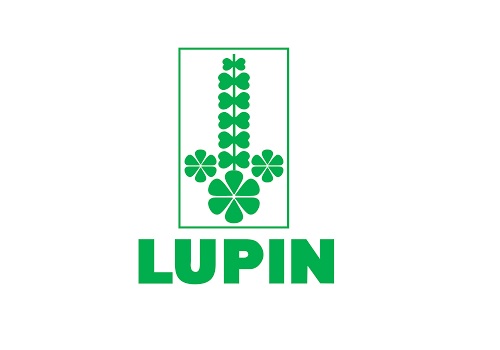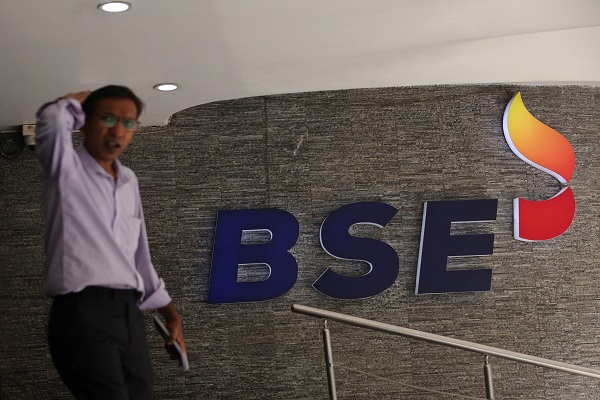Voler Car coming with IPO to raise Rs 27 crore

Voler Car
- Voler Car is coming out with an initial public offering (IPO) of 30,00,000 equity shares in a price band Rs 85-90 per equity share.
- The issue will open on February 12, 2025 and will close on February 14, 2025.
- The shares will be listed on SME Platform of NSE.
- The face value of the share is Rs 10 and is priced 8.50 times of its face value on the lower side and 9.00 times on the higher side.
- Book running lead manager to the issue is GYR Capital Advisors.
- Compliance Officer for the issue is Mustafa Rangwala.
Profile of the company
Voler Car is primarily engaged in providing employee transportation services (ETS) to IT/ITeS, large corporates and MNCs clients with presence across various major cities in India. Its ETS solutions cover comprehensive home-to-office-to-home transportation, supported by 24/7 customer service, dedicated location teams, and a fleet of verified vehicles and chauffeur-drivers. It manages a pooled fleet of over 2,500 vehicles, including small cars, sedans, SUVs, electric vehicles, buses, and tempo travellers. In the fiscal year 2023-24, it successfully completed around 3,23,550 trips, averaging over 884 trips per day. Meanwhile, in the fiscal year 2024-25 (up to November 30, 2024), it has completed around 2,84,039 trips, with a daily average exceeding 1,183 trips.
The company operates largely on an asset-light model where the majority of its vehicles are sourced from vendors rather than owned. This strategy allows it to maximize revenue by optimizing seat usage and enhancing overall employee mobility. As on date, the company operates in Kolkata, Mumbai, Pune, Bhubaneshwar, Delhi-NCR, Ahmedabad, Lucknow, Jaipur and Ludhiana with a fleet that includes both vendor-sourced and company leased vehicles. Its service offers a complete solution for corporate transportation needs, adhering to service level agreements (SLAs) to guarantee timely pick-ups and drop-offs.
the company makes it a priority not to drop off women passengers last, and if such a situation arises, it ensures that an escort is provided for their safety. It has integrated GPS tracking system into its services. Its operation team handles reservations, operations, car tracking, incident response, and manage the client SLAs. The integration of its third party technology with its GPS tracking system allows it to easily manage its client’s corporate travel requirements from a single integrated system.
Proceed is being used for:
- Funding working capital requirements of the company
- General corporate purposes.
- IPO issue expenses
Industry Overview
The corporate employee transportation service market size is predicted to reach $49.33 billion in 2028 at a compounded annual growth rate (CAGR) of 8.3%. The growth in the corporate employee transportation service market is due to growing corporate office presence in the Asia-Pacific region is expected to hold the largest corporate employee transportation service market share. Major players in the corporate employee transportation service market include Massachusetts Bay Transportation Authority, Smart24X7 Services, Global Charter Services, Prairie Bus. The COVID-19 pandemic hampered the market by forcing many companies to work from home, resulting in less employee transportation. However, as economies have recovered from the lockdown, a return to office is expected to provide transportation service operators with numerous opportunities in the coming years.
The employee transportation service market, is estimated to have generated a revenue of Rs 503.5 billion ($6.1 billion) as of CY2023, and it exhibits steady expansion growing in line with development of corporates such as IT, Global Capability Centers (GCC) segments etc. It is expected to grow at a CAGR of 11.8% to reach Rs 1097.6 billion ($13.2 billion) revenue in CY2030. This aligns with India's growing economy, the rise of the organized sector, and increasing employee expectations for convenient commutes. The ETS market caters primarily to corporates, particularly in tier-1 cities, with pricing models varying based on vehicle type, route distance, and service customization. Common models include per-employee, per-trip, and fixed monthly charges.
By CY2028, India's Tier 2 and Tier 3 cities are projected to host 57% of the urban workforce. Although Tier 1 cities currently contribute significantly to corporate mobility revenue, mobility providers are aiming to capitalize on these smaller cities as additional revenue sources. The expansion of ITES and increasing business travel needs correlate directly with growth in corporate mobility. In addition, India's strong IT sector and cost-effective workforce are fueling the growth of Global Capability Centers (GCCs). The number of GCCs is expected to rise from 1580 in CY2023 to 2400 by CY2030. Government policies promoting R&D and innovation hubs in key sectors like IT, electronics, and EVs further strengthen this growth. Additionally, development of GCC clusters in Tier 2 & 3 cities like Hosur and Nashik complements established centers in Pune and Bengaluru. This in turn is leading to higher demand for quality employee transport from these GCCs.
Pros and strengths
Established brand built over years through operational excellence: The company has built a notable presence in Kolkata, Mumbai, Pune, Delhi-NCR, Ahmedabad, Bhubaneshwar, Ludhiana, Lucknow and Jaipur. Its vehicles are outfitted with necessary amenities and are driven by professionally trained and verified drivers. The company makes it a priority not to drop off women passengers last, and if such a situation arises, it ensures that an escort is provided for their safety. Its dedicated operations team, which provide its corporate customers with a single point of contact for all mobility-related needs, 24x7 manned customer care, high safety and hygiene standards, well-maintained fleet quality check processes, and seamless technology integrations have all helped to build its brand in the employee transportation service segment. It also uses GPS tracking to control the entire logistics cycle and ensure that operational efficiency is not impacted. The level of service provided has resulted in a notable brand presence with minimal spends on advertising.
Asset-light business model: It operates largely on an asset-light model where the majority of its vehicles are sourced from vendors rather than owned. This strategy allows it to maximize revenue by optimizing seat usage and enhancing overall employee mobility. This model eliminates the need for capital-intensive investments in vehicle ownership, maintenance, and fuel, thereby enabling scalability and flexibility. With higher revenue directly enhancing profitability due to the absence of substantial fixed costs, the company can achieve improved profit margins. This model also augments its ability to serve its clients in more efficient and reliable way by making fleet available at all times. This strategic approach helps the company sustain its competitive edge and leverage its asset-light model for continued growth and profitability.
Scalable business model: As a service-oriented company, the company’s business model is centered on fulfilling customer demands while maximizing the efficient use of its existing resources. This approach has proven both successful and scalable, allowing it to grow steadily in recent years. It is well-positioned to expand further and actively promote its services, all while maintaining the highest standards of quality.
Risks and concerns
Maximum revenue comes from limited customers: Revenue from its top ten customers constituted 99.73%, 99.65%, 99.50% and 99.55% of its revenue from operations for period ending September 30, 2024, March 31, 2024, March 31, 2023 and March 31, 2022 respectively. The majority of its clients are in the information technology and business process outsourcing industries. It has entered into service agreements with its customers and loss of any significant customers would have an adverse effect on its financial results. It expects that it will continue to be reliant on its major customers for the foreseeable future. Accordingly, any failure to retain these customers and/or negotiate and execute contracts with such customers on terms that are commercially viable, could adversely affect its business, financial condition and results of operations.
Geographical constrain: It runs its operations in India with presence in Kolkata, Mumbai, Pune, Bhubaneswar, Delhi-NCR, and Ahmedabad, Jaipur, Ludhiana and Lucknow in India. However, a significant percentage of its revenue is contributed by Kolkata and Mumbai. It experiences greater competition in these both cities in India than it does in other markets in which it operates. As a result, its geographic concentration, its business and financial results are susceptible to economic, social, weather, and regulatory conditions or other circumstances in each of these cities. Any deterioration of macroeconomic conditions or decline in travel demand in these cities could unfavourably impact the volume of car rentals.
Huge working capital requirements: The company’s business requires significant amount of working capital and major portion of its working capital is utilized towards debtors. The company’s trade receivables as on September 30, 2024, March 31, 2024, March 31, 2023, and March 31, 2022 were Rs 372.58 lakh, Rs 369.74 lakh, Rs 237.61 lakh and Rs 168.83 lakh respectively. The results of operations of its business are dependent on its ability to effectively manage its trade receivables. To effectively manage its trade receivables, it must be able to accurately evaluate the credit worthiness of its customers and ensure that suitable terms and conditions are given to them in order to ensure its continued relationship with them. However, if its management fails to accurately evaluate the terms and conditions with its customers, it may lead to write-offs bad debts and/ or delay in recoveries which could lead to a liquidity crunch, thereby adversely affecting its business and results of operations. A liquidity crunch may also result in increased working capital borrowings and, consequently, higher finance cost which will adversely impact its profitability.
Outlook
Voler Cars is engaged in the business of providing reliable and efficient employee transportation services (ETS) to large MNC's and corporate clients. The company offers comprehensive home-to-office transportation with 24/7 customer service, dedicated teams, and a fleet of over 2,500 vehicles, including cars, SUVs, electric vehicles, buses, and tempo travelers. The company has established brand built over years through operational excellence with scalable business model. On the concern side, the company’s top ten customers contribute majority of its revenues from operations. Any loss of business from one or more of them may adversely affect its revenues and profitability. Moreover, it generates a significant percentage of its revenue from operations from customers in Kolkata and Mumbai in India. If its operations in these cities are negatively affected, its financial results and future prospects would be adversely impacted.
The company is coming out with a maiden IPO of 30,00,000 equity shares of Rs 10 each. The issue has been offered in a price band of Rs 85-90 per equity share. The aggregate size of the offer is around Rs 25.50 crore to Rs 27.00 crore based on lower and upper price band respectively. On performance front, the revenue from operations of the company for fiscal year 2024 was Rs 3,089.71 lakh against Rs 2,396.07 lakh revenue from operations for Fiscal year 2023, an increase of 28.95% in revenue from operations. Moreover, profit after tax for the Fiscal 2024 was at Rs 356.29 lakh against profit after tax of Rs 199.23 lakh in fiscal 2023, an increase of 78.83%.
The company’s strategy involves expanding its presence into additional Tier-I and Tier-II cities across India while also increasing its market penetration in cities where it already operates. Currently, the company is active in Kolkata, Mumbai, Pune, Bhubaneswar, Delhi-NCR, Ahmedabad, Lucknow, Jaipur and Ludhiana. It plans to expand into Tier-I cities such as Chennai, Bangalore and Hyderabad and Tier-II cities such as Chandigarh and Surat. By extending its reach to new locations and strengthening its position in these existing markets, it aims to drive further growth and enhance its overall footprint.























